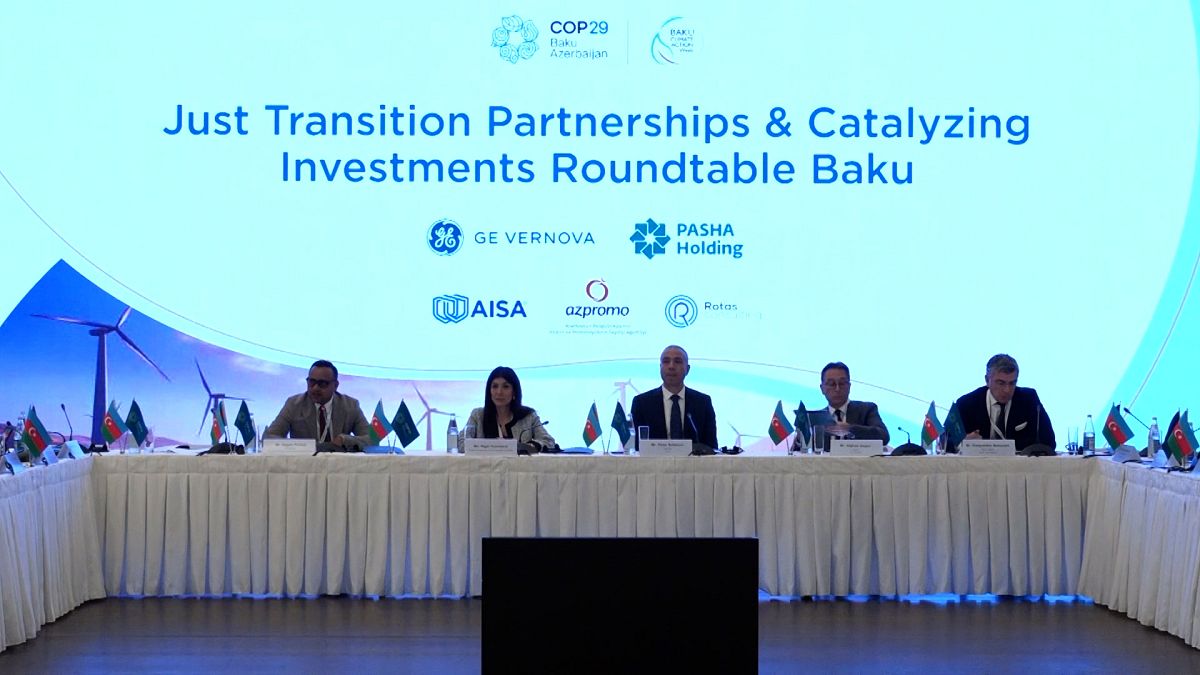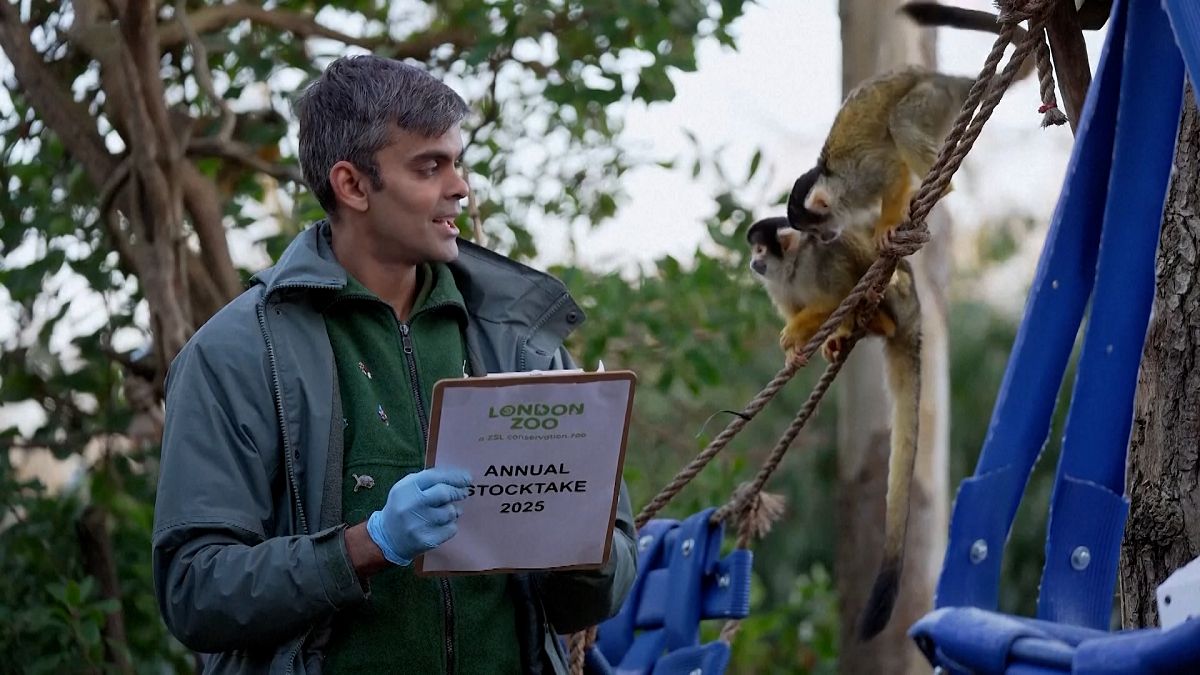After Orbán, EU eyes new Russia sanctions push
Momentum has stalled under Hungary's direction and leadership turnover in Brussels. Poland wants to change that.
BRUSSELS — EU countries are keen to resurrect discussions come January on how to hit Russia’s economy.
The reason: That’s when Hungary — Moscow’s closest ally in the EU — will have to relinquish control of policy discussions and a new EU executive team will be fully in place to take the issue forward.
Additionally, Poland, ordinarily one of Ukraine’s strongest supporters, will take over the reins from Hungary as the EU’s presidency rotates. And Warsaw has already signaled it wants to use its six-month leadership stint to get tougher on Russian fuel flowing to the Continent, which remains a critical Kremlin revenue stream.
“The imports of Russian energy [are] growing,” Krzysztof Bolesta, Poland’s minister for climate and the environment, said earlier this week at a meeting of ministers in Luxembourg. “This is a bad sign. We need to address that.”
The EU has already imposed restrictions on Russian oil and significantly reduced purchases of pipeline gas. But there are scores of well-known loopholes Moscow is exploiting, as well as a growing fleet of hard-to-track tankers still selling Russian fossil fuels worldwide.
The bloc sorely needs to “reassess its sanctions strategy to improve their design and enforcement — and the Polish presidency certainly provides a good opportunity to do that,” said Maria Shagina, an economist and sanctions expert at the International Institute for Strategic Studies.
Good riddance
According to diplomats and officials, Hungarian Prime Minister Viktor Orbán has used his country’s presidency to bring sanctions talk to a virtual halt. Now, member states are looking to Poland to revive thorny issues languishing on the agenda.
“A harsh winter is coming in Ukraine, but so too is the end of a disastrous Hungarian presidency,” said one senior EU diplomat, granted anonymity to speak freely on the sensitive talks.
“We hope all questions that became hostages of Hungary’s unconstructive blocking will be solved with a necessary sense of urgency,” the diplomat added. “A fresh blow of air is definitely much awaited.”
A second diplomat said there was a growing awareness that the focus of the restrictions needs to be refined. “We need to accept that the sanctions regime isn’t working as it should — there are problems with liquefied natural gas (LNG), there are problems with oil, there are problems with certain trade goods,” the diplomat said.
Yet for a new package to get off the ground, the European Commission, the EU’s Brussels-based executive, first needs to propose the measures to the bloc’s 27 member countries.
“First of all, we need a proposal from the Commission,” a third EU diplomat said. “We can’t blame Hungary if we have nothing to talk about.”

Track and trace
It was no surprise that sanctions momentum came to a halt over the last half year.
In July, the EU’s top diplomat on sanctions, David O’Sullivan, told POLITICO that the next “logical moment” for a fresh sanctions push likely wouldn’t come until the year-end. The EU election had just happened in June, Hungary had just taken over the rotating presidency and a new Commission wouldn’t be in place until fall at the earliest.
Since then, O’Sullivan has stressed the bloc will need to reopen talks about whether to extend its Russia sanctions to EU companies’ foreign subsidiaries — the so-called no-Russia clause. Discussion floundered earlier this year amid an acrimonious standoff between Germany —the bloc’s biggest exporter — and other, less industrial countries.
The Poles also want to use their presidency to push for more transparency on exactly how much Russian fossil fuel is entering the EU — perhaps even under false pretexts.
The initiative has considerable support. Earlier this week, 10 countries — including France, the Czech Republic, Sweden, Finland and the three Baltic nations — issued a joint warning that there has been “a recent increase in imports of Russian LNG” in the EU, but that “these natural gas suppliers are not currently properly identified.”
The document, seen by POLITICO, calls for stricter checks on the origin of gas entering the bloc to ensure traceability.
It’s a proposal that will likely fall into the Polish presidency’s lap in January.
According to Shagina, the issue is likely on the table because “beyond LNG, there are few big-ticket sanctions left” to target. Instead, future sanctions packages are expected to target circumvention of existing restrictions, like an oil price cap that has proved quite porous.
Any new sanctions would also have to overcome Hungarian opposition, even if Budapest no longer steers the conversations.
The EU requires unanimity to adopt fresh sanctions and Budapest has regularly wielded its veto to scale back, stall or block war-time penalties on Russia. But countries have gotten increasingly creative in finding workarounds on certain Ukraine-related issues.
Ukraine expressed optimism that Poland would be able to resurrect the EU sanctions talks.
“We have high hopes for the Polish presidency of the Council,” Ukraine’s sanctions commissioner, Vladyslav Vlasiuk, told POLITICO. “As a neighboring country directly experiencing the harsh realities of this war, we expect Poland to drive strong action on sanctions.”
At a meeting of European leaders on Thursday, attended by Ukrainian President Volodymyr Zelenskyy, member states signed off on a statement that committed to “further limit Russia’s ability to wage war, including by further sanctions.”
Zia Weise reported from Luxembourg.
What's Your Reaction?



















































